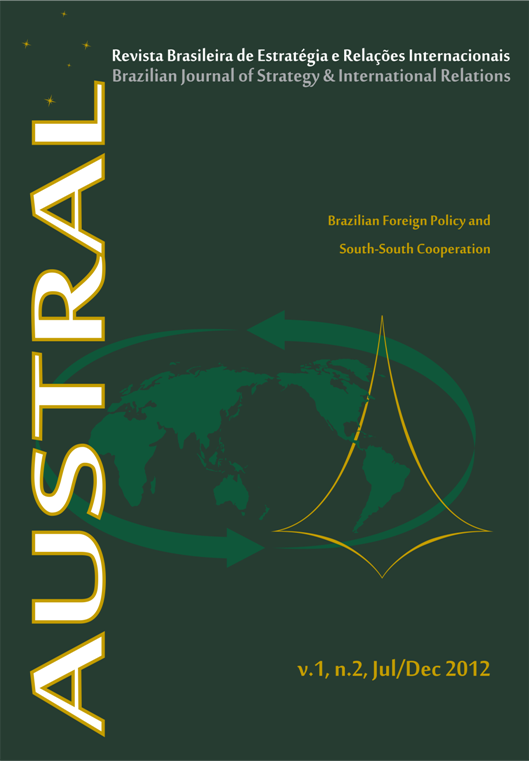BRAZIL IN FACE OF THE CHINESE RISE: THE RISKS OF REGRESSIVE SPECIALIZATION
DOI:
https://doi.org/10.22456/2238-6912.30513Keywords:
Brazil, China, Development StrategiesAbstract
This paper assesses how China’s rise as a global power has affected Latin America, in general, and Brazil, in particular. If the global economy will increasingly be Asian-centered and Sino-centered in the decades to come, we must ask which role will be reserved for Latin American countries. We argue that, despite the intentions of a re-orientation in its growth model, the response of the Chinese policymakers to the international financial crisis has reinforced, at least in the short and medium terms, the dependence on exports and investments. Considering the sluggish recovery in advanced economies, that strategy is likely to amplify Chinese pressures to access dynamic domestic markets in emerging countries. In this context, Latin America represents not only a source of natural resources but an increasingly important market for absorbing the Chinese manufactured products. As a consequence, countries such as Brazil, with more diversified production and international trade structures, might experience a regressive pattern of specialization, which might trigger protectionist reactions and other tensions on bilateral relations with China.Downloads
Download data is not yet available.
Downloads
Published
2022-10-26
How to Cite
Moreira Cunha, A., Caputi Lélis, M. T., da Silva Bichara, J., & Gomes de Lima, M. (2022). BRAZIL IN FACE OF THE CHINESE RISE: THE RISKS OF REGRESSIVE SPECIALIZATION. AUSTRAL: Brazilian Journal of Strategy & International Relations, 1(2), p. 129–168. https://doi.org/10.22456/2238-6912.30513
Issue
Section
Articles


